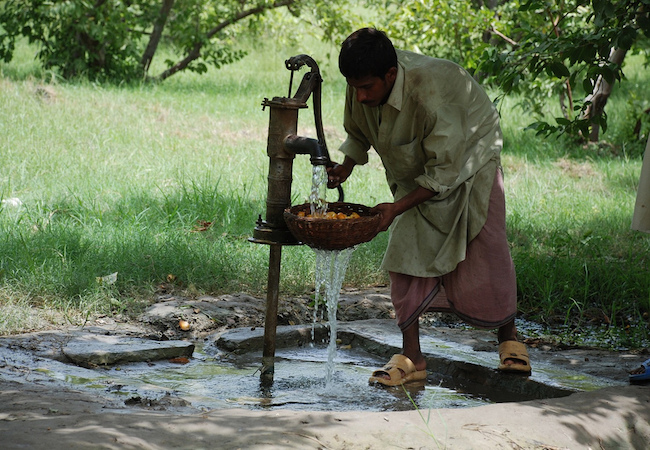
By Sadia Kazmi
While Pakistan has been blessed with water from natural resources, which mainly include the rivers flowing from mountainous regions, the underground water basins and the rain falls, yet over the period of time, owing to many factors, Pakistan has essentially become a water deficient country. The situation is so alarming yet no concrete measures have been taken in this regard by the concerned authorities. It is essential that in order to address this grave issue, it should first be recognized as a national security threat having direct implications for each and every individual, industry, economy and each level of policy making and implementation. According to the recent statistics and report by the IMF Pakistan ranks third among countries facing water shortage in the world. While the Indus River water is considered as best drinking water by the World Health Organization, its quality has increasingly been deteriorated as most of the chemical ridden waste from factories are being dumped into it without any accountability, eventually polluting the water and causing huge damage to the health of people and livestock. This contaminated water is making it undrinkable to the dangerous levels. People, especially those living in the urban areas are contracting life threatening diseases like Hepatitis and Cancer.
As Pakistan is the agrarian state, its economy banks upon cultivation which solely depends on the water supply. But with the water levels going down, the already weak economy of the state is set to face tremendous blow. Not only the volume of crops is going to be affected but the possible revenue that is generated by exporting the crops, will suffer. This will have dire socio-economic implications as great number of people earning livelihoods through peasantry and farming, would lose their jobs, making them move in throngs to the urban areas, resulting in the congestion of cities. The population is also on an increase with rapid pace, which means more pumping of the water from underground sources and in turn causing the underground water level to go down. This has already been happening in the major cities of the country, Islamabad being the capital is facing 65% of shortage in the water supply.
This alarming situation owes largely to the mismanaged and ineffective water policies. There is an immediate need to devise a timely water policy. The check and balance on the implementation as well as judicious distribution of water by IRSA among all the provinces is crucially required. Most of all there is no mechanism to save and store the water, most of which is annually wasted into the seas. It is believed that Pakistan loses 90% of river and rain water mainly because there is no storage mechanism in place. Additionally, India is another factor which has been illegally constructing dams over river Chenab and Jehlum, in violation of Indus Basin Treaty further adding to the water shortage problem for Pakistan. It is high time that the whole nation as one should recognize the need for constructing dams and barrages. According to the UNO report Pakistan has a surface water of 153MAF and has underground water resources of only24MAF and could probably run out of drinking water by 2025. In this regard the construction of Kalabag, along with Bhasha and other dams is need of the hour. Kalabagh dam if constructed, will bring multifaceted benefits and much needed respite to the dwindling economy and water issues of the state. It will have the potential to generate 3600megawatt of electricity. The water storage capacity would be 3.2million MAF, which can rid the country of water problem for next hindered years or so. Last but not the least, around 850000 acres of arid zone in KP can be turned into cultivable land. The need is to bring all the stakeholders on the same page and sensitize them towards the dire need of this project for the benefit of all. In this regard, the negative propaganda should be mitigated and grievances of the locals should be listened to and duly addressed.
Global warming and climate change is another factor which is causing severe heat waves, long dry spells without rain and unexpected droughts and famines not just across the country but all over the globe. Nonetheless Pakistan faces the imminent threat more readily than many of the other countries of the world.
Along with all that there is a need to cultivate civic sense where each and every individual should be sensitive towards the wastage of water. The water leakages from pipes, taps, flushes etch at homes and in streets should be watched and taken notice of by the individuals and immediate measures should be taken to keep such wastages. There should also be a sense of responsibility towards using less water during taking showers. The water situation today demands that a bucket instead of free-flowing water from showers and taps should be used. Unless these habits are developed by all, the problem of wastage of water cannot be address nor could be effectively minimized.




